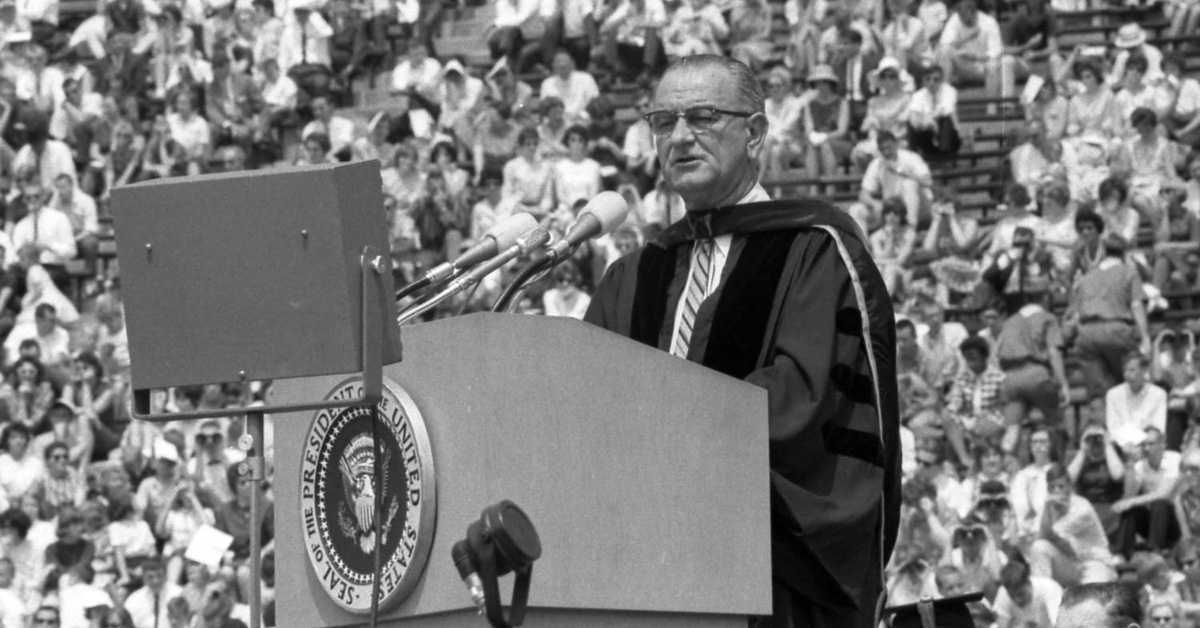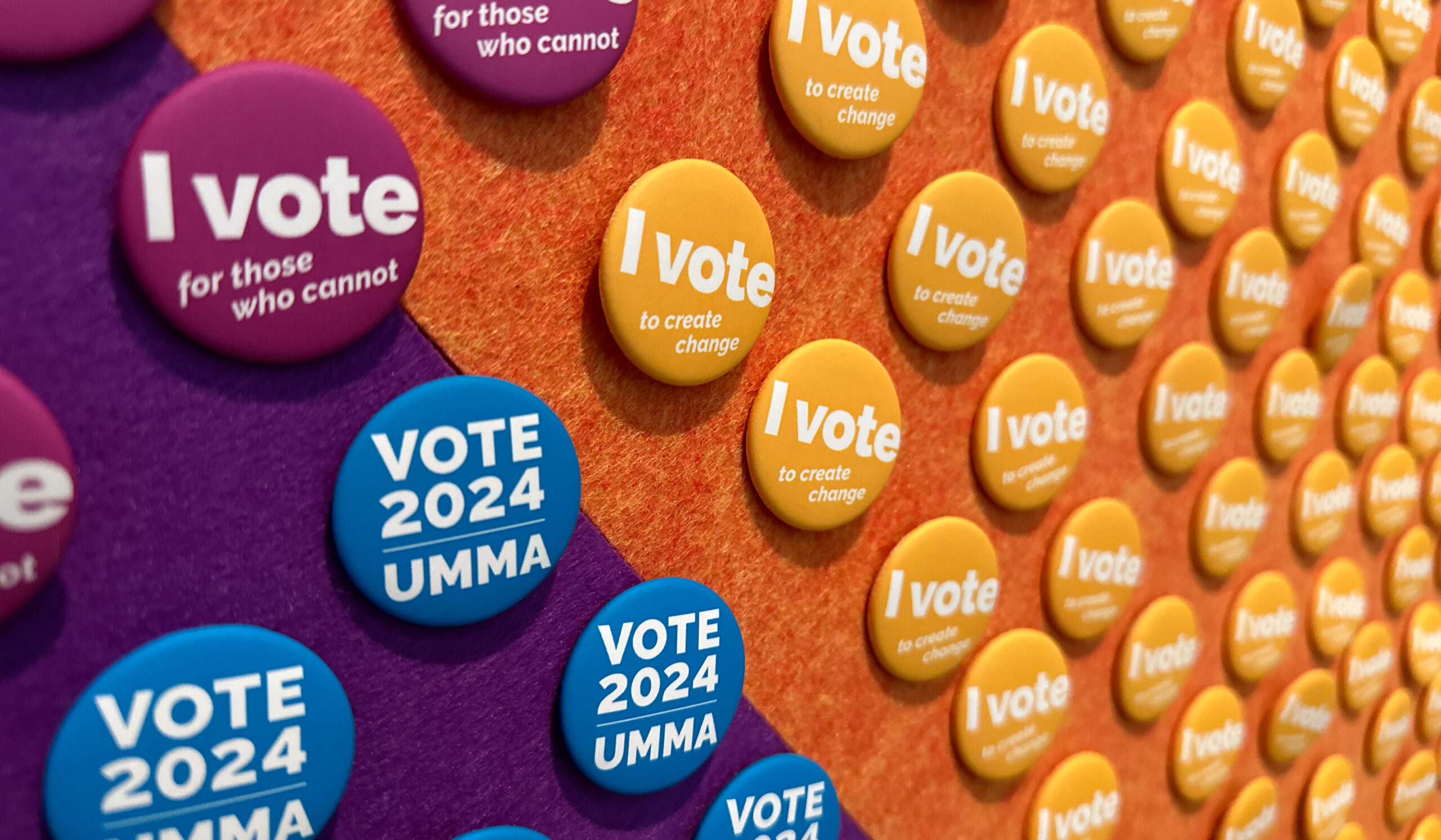Now that the mystery is over and we have elected our next president, the question is: will Donald Trump make a speech at U-M as so many presidents have done in the past? Here are some calming, and oddly contemporary, snippets of speeches delivered to U-M students from presidents, vice presidents, and a victorious presidential candidate.
1960: Senator John F. Kennedy— A Global World
On the steps of the Michigan Union on Oct. 14 at 2 a.m. Senator Kennedy announced the creation of the Peace Corps. Here is what he asked the 10,000 students who stayed up to greet the candidate who would win the election a mere three weeks later.
“How many of you who are going to be doctors, are willing to spend your days in Ghana? Technicians or engineers, how many of you are willing to work in the Foreign Service and spend your lives traveling around the world? On your willingness to do that, not merely to serve one year or two years in the service, but on your willingness to contribute part of your life to this country, I think will depend the answer whether a free society can compete. I think it can! And I think Americans are willing to contribute. But the effort must be far greater than we have ever made in the past.”
1964: President Lyndon Johnson—Ending Poverty and Racial Injustice
Exactly six months to the day after the assassination of John F. Kennedy, President Johnson announced to U-M students the goals behind his “Great Society” domestic policy.
“Your imagination, your initiative, and your indignation will determine whether we build a society where progress is the servant of our needs, or a society where old values and new visions are buried under unbridled growth. For in your time we have the opportunity to move not only toward the rich society and the powerful society, but upward to the Great Society. The Great Society rests on abundance and liberty for all. It demands an end to poverty and racial injustice, to which we are totally committed in our time. But that is just the beginning.”
1974: Vice President Gerald Ford—Corruption at the Top
Three months before he became president upon Richard Nixon’s resignation, Vice President Ford delivers the U-M commencement address sharing these thoughts about the Watergate scandal.
“I am proud to be a citizen of a country which can openly debate the legal and moral fitness of its highest government leaders without riot or revolution, without reprisals or repression, and within a Constitutional system so strong and secure that its position in the community of nations is undiminished.”
1978: Vice President Walter Mondale—Human and Civil Rights
Vice President Mondale, one of the chief sponsors of the 1963 Rumford Fair Housing Act, which later became Title VIII under the 1968 Civil Rights Act, had this to say about social justice.
“If the plea is for social justice and human rights, there could be no more compelling and decent plea than that. But, speaking as one who spent his entire life in the cause of human rights and civil rights, let me say this: there is no hope nor will there ever be any hope of social justice in human liberty except in an environment of decency and civility. Never.”
1991: President George H. Bush—Freedom of Speech and Diversity
The first President Bush had this to say about diversity at U-M commencement, nearly 10 months after signing into law the Americans with Disabilities Act.
“No, but seriously, the freedom to speak one’s mind—that may be the most fundamental and deeply revered of all our liberties. Americans, to debate, to say what we think. Because, you see, it separates good ideas from bad. It defines and cultivates the diversity upon which our national greatness rests. It tears off the blinders of ignorance and prejudice and lets us move on to greater things.”
2010: President Barack Obama—Democracy is Messy
Less than two months after enacting the Affordable Care Act, otherwise known as Obamacare, President Obama said this at U-M’s commencement.
“Moreover, democracy in a nation of more than 300 million people is inherently difficult. It’s always been noisy and messy, contentious, complicated. We’ve been fighting about the proper size and role of government since the day the framers gathered in Philadelphia. We’ve battled over the meaning of individual freedom and equality since the Bill of Rights was drafted. As our economy has shifted emphasis from agriculture to industry, to information, to technology, we have argued and struggled at each and every juncture over the best way to ensure that all of our citizens have a shot at opportunity.”





